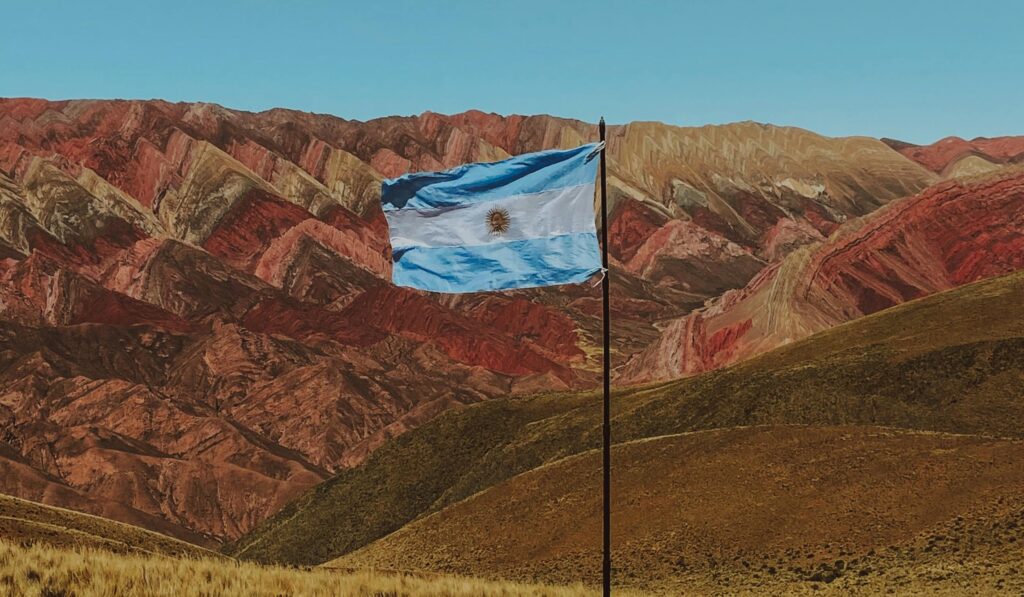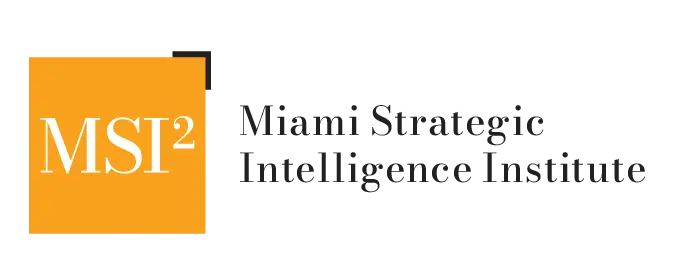24 Mar United States Bans Cristina Fernández de Kirchner from Entering the Country: A Boost for Javier Milei?
By,
William Acosta, SME, MSI2
Jesús Daniel Romero, Senior Fellow, MSI2
On March 21, 2025, the United States banned former Argentine President Cristina Fernández de Kirchner from entering the country, citing her involvement in corruption cases during her administration (Reuters, 2025). The measure, announced by Secretary of State Marco Rubio, also applies to her immediate family members and former officials like Julio Miguel De Vido, linked to bribery in public works contracts (U.S. Department of State, 2025). Although Washington frames this as part of its anti-corruption efforts, the timing—following the Libra cryptocurrency scandal implicating President Javier Milei raises questions about ulterior motives (Peregil, 2025). Is this a genuine anti-corruption stance or a strategic move to bolster Milei and reshape Argentine politics?
Milei vs. Kirchnerism: A Context of Political Rupture
Milei, an anarcho-capitalist and vocal critic of Kirchnerism, has centered his presidency since December 2023 on combating corruption and liberalizing Argentina’s economy (Rodríguez, 2024). His rejection of leftist policies has aligned him with Western powers, evident in his February 2025 visit to the Conservative Political Action Conference (CPAC) in Washington, where he met Donald Trump and key Republican figures (Peregil, 2025; Reuters, 2025).
In this context, the U.S. sanction against Fernández de Kirchner aligns with Milei’s interests. While no direct evidence suggests he orchestrated it, the outcome weakens his chief political rival and bolsters his narrative that Kirchnerism embodies Argentina’s economic and moral decline (Rodríguez, 2024).
A Political Blow to Kirchnerism
The ban transcends symbolism, hindering Kirchnerism’s ability to reorganize as a robust opposition. For Milei, who has long accused Kirchnerism of systemic corruption, this international action reinforces his rhetoric (Rodríguez, 2024). Fernández de Kirchner was convicted in 2022 in the Vialidad corruption case for fraudulent administration, a ruling upheld in 2024 but still under appeal (García & Heath, 2024).
Yet, the measure could backfire. Despite her legal troubles, Fernández de Kirchner retains a loyal Peronist base. She has accused Milei of engineering the sanction, a narrative that could galvanize her supporters and fuel claims of foreign interference, especially amid skepticism tied to the Libra scandal (Peregil, 2025).

Geopolitics and Suspicions: The Shadow of Libra
Geopolitically, the ban reflects Washington’s interest in countering China’s growing influence in Latin America by supporting allies like Milei, a critic of Beijing and socialism (U.S. Department of State, 2025). It signals a preference for an Argentine future detached from Kirchnerism, potentially easing economic negotiations, such as those with the International Monetary Fund (IMF), to which Argentina owes $44 billion (Reuters, 2025).
However, the Libra cryptocurrency scandal where Milei’s endorsement led to a rapid collapse, costing investors millions and sparking fraud allegations casts a shadow over U.S. intentions (Peregil, 2025; Rojas, 2025). Critics suggest the sanction might serve as a distraction or a means to consolidate U.S. influence under the guise of anti-corruption, raising doubts about its purity as a justice-driven act (Peregil, 2025).
Stronger Sanctions on the Horizon?
Currently, the measure only restricts U.S. entry, but asset freezes remain possible. Such escalation would require:
- Proof of Fernández de Kirchner’s funds in U.S.-linked banks.
- Evidence of illicit origins.
- An order from the Office of Foreign Assets Control (OFAC) (U.S. Department of the Treasury, 2023).
Precedents like sanctions on Nicolás Maduro and Russian oligarchs show Washington’s willingness to act when evidence is robust (U.S. Department of the Treasury, 2023). However, unclear asset trails, diplomatic fallout, or insufficient legal grounding could stall further measures, leaving resolution to Argentina’s courts.
A Boost for Milei’s 2027 Re-election?
Could this sanction pave the way for Milei’s re-election in 2027? For supporters, it validates his anti-corruption crusade, potentially rallying voters weary of Kirchnerism ahead of the October 2025 legislative elections (Rodríguez, 2024). Yet, his re-election hinges more on economic performance than political wins.
Milei’s reforms have reduced inflation from 211% in 2023 to lower levels in 2024, but poverty exceeds 50%, and purchasing power lags (Reuters, 2025; World Bank, 2024). If economic recovery falters, neither U.S. backing nor the Kirchner ban will offset public frustration. The opposition’s response matters too: Fernández de Kirchner could reframe the sanction as foreign aggression, while moderates like Juntos por el Cambio might exploit polarization to attract centrists (Rodríguez, 2024). Milei’s U.S. alliance, while strategic, risks alienating nationalists wary of foreign influence, a tension the Libra controversy could amplify (Peregil, 2025).
Conclusion: A Move Under Scrutiny
Whether an anti-corruption stance or a geopolitical maneuver, the ban on Fernández de Kirchner has shifted Argentina’s political landscape. It undermines Kirchnerism, empowers Milei, and deepens U.S.-Argentina ties. Yet, the Libra scandal fuels suspicion about Washington’s motives (Peregil, 2025). For Milei, the sanction offers a political edge, but his and Argentina’s future rest on economic stability and a populace exhausted by decades of crisis.
References
García, D. A., & Heath, M. (2024, November 13). Court upholds Fernández de Kirchner’s graft conviction, sentence. Buenos Aires Times. https://www.batimes.com.ar
Peregil, F. (2025, February 19). Libra cryptocurrency scandal lands Javier Milei in the worst crisis of his presidency. EL PAÍS English. https://english.elpais.com/economy-and-business/2025-02-19/libra-cryptocurrency-scandal-lands-javier-milei-in-the-worst-crisis-of-his-presidency.html
Reuters. (2025, March 22). US bars ex-Argentine president Fernandez de Kirchner on graft accusations. https://www.reuters.com/world/americas/us-bars-ex-argentine-president-fernandez-de-kirchner-graft-accusations-2025-03-22/
Rodríguez, A. (2024, December 10). Argentina’s Cristina Kirchner, facing corruption allegations, may negotiate her way out. Argentina Reports. https://argentinareports.com/argentinas-cristina-kirchner-facing-corruption-allegations-may-negotiate-her-way-out/
Rojas, J. (2025, February 17). Javier Milei faces impeachment calls after Argentina cryptocurrency collapse. The Guardian. https://www.theguardian.com/world/2025/feb/17/javier-milei-faces-impeachment-calls-after-argentina-cryptocurrency-collapse
U.S. Department of State. (2025, March 22). Designation of former president of Argentina and former minister of planning of Argentina for involvement in significant corruption. https://www.state.gov/designation-of-former-president-of-argentina-and-former-minister-of-planning-of-argentina-for-involvement-in-significant-corruption/
U.S. Department of the Treasury. (2023). Sanctions programs and country information. https://home.treasury.gov/policy-issues/financial-sanctions/sanctions-programs-and-country-information
World Bank. (2024). Argentina economic overview. https://www.worldbank.org/en/country/argentina/overview
